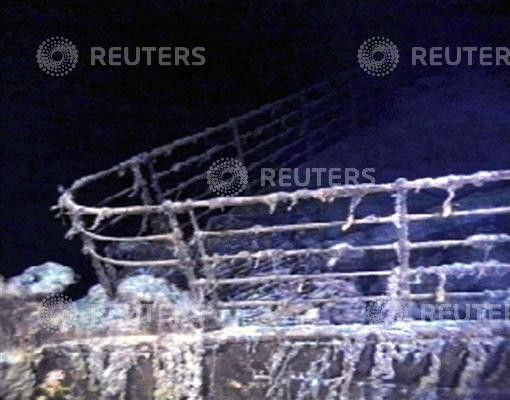Titanic Moon: Is the Moon to Blame for the Titanic's Deadly Maiden Voyage?

Anyone who has heard of the Titanic or has seen James Cameron's record breaking film, knows that the doomed transatlantic ship sank to the bottom of the ocean because it struck an iceberg. However, researchers now suggest the moon could have contributed to the destruction of the ill-fated vessel.
The lunar connection may explain how an unusually large number of icebergs got into the path of the Titanic, said Donald Olson, a Texas State University physicist whose team of forensic astronomers examined the moon's role, reported Reuters.
Researchers were puzzled how on April 15, 1912, Capt. Edward Smith disregarded glaring warning of impending danger to his ship. Smith w was considered one of the most experienced captains in the White Star Line, reported Reuters, sailing the Atlantic Ocean on several occasions. However, in the early hours of the morning, the Titanic struck an iceberg killing 1517 people.
Three months earlier, Olsen reportedly said a once-in-many-lifetimes event occurred. On Jan. 4, 1912, the sun and moon lined up in such a way that their gravitation pulls multiplied. At the same time, the moon was approaching the Earth the closest it had been in 1,400 years. Also, the Earth's closest approach to the sun for 1912 happened on the previous day.
This configuration maximized the moon's tide-raising forces on the Earth's oceans, Olson said. That's remarkable.
The team of researchers and investigators determined that an unusual amount of icebergs from Greenland were stuck in the waters of Labrador and Newfoundland. They were unable to move southward until they melted enough.
However, Olsen's team determined that unusual high tides, caused by the astronomical events, caused the icebergs to dislodge quicker, before they melted and shrank, bringing unusually large icebergs into the sea lanes, reported Reuters.
Therefore, Capt. Smith and the crew of the Titanic were no way prepared to for the icebergs they faced. Smith may have had an excuse for acting casually to the report of ice in the ship's path, because he may have expected them to be less numerous and small.
In astronomical terms, the odds of all these variables lining up in just the way they did was, well, astronomical, he said.
© Copyright IBTimes 2024. All rights reserved.





















